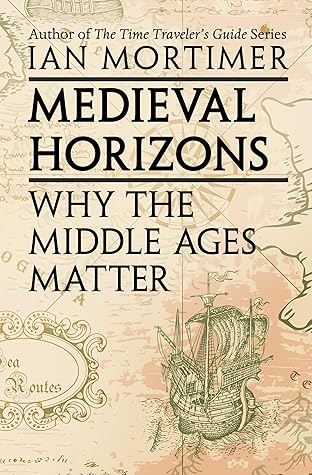More on this book
Kindle Notes & Highlights
by
Ian Mortimer
Read between
October 11 - December 18, 2024
Why do you think of yourself as an individual? Why do you need to travel? Why do you expect the state to protect you? Why do you need money? Why do we think peace is normal, not war?
But it is striking that we can understand the English of five hundred years before our time and yet people living then would not have been able to understand the language of three hundred years before theirs, let alone five hundred. In this case technology – as in the invention of the printing press – acted as a brake on change, not an accelerator.
when people travel further, their collective knowledge increases exponentially.
The implications of this multi-dimensional expansion of our collective memory were significant. The law, for example, was hugely strengthened. People could expect judgments on property and rights to be based on written evidence rather than personal recollection. Natural philosophers could make and circulate astronomical observations and calculations more easily. Music in particular was completely transformed.
One of the most important developments of the last thousand years – if not the most important – is the shift from trusting God to safeguard our interests to trusting our fellow human beings when they have gained a professional competence in their field. In terms of our health, that shift began in the Middle Ages.
To the ever-practical medieval mind, lamenting the existence of war was rather like complaining about the existence of winter. Just as winter came around every year and was best used in whatever ways were possible, so the key to limiting the damage inflicted by war was to use it to your advantage.
Any storyteller even partially reflecting the wanton acts of cruelty to be seen every day in a medieval city would instantly render that society repulsive to his or her readers. This is why historical authenticity is even harder to achieve than historical accuracy: the truth is likely to offend.1
The result is a reproduction of modern society draped in medieval clothing. Indeed, ‘Robin Hood Syndrome’ is an appropriate term for the obligation on writers and artists to bring the Middle Ages into alignment with the expectations of our own age.2
Individual freedom is thus a major development of the Middle Ages. Indeed, given the emphasis we place on our liberty in the modern world, many would regard it as the most important element of the entire medieval legacy. Although in later centuries, certain English families became owners of slaves overseas, slavery as an institution was never again legally recognised in Britain (except for two years in the sixteenth century, 1547–9, when enslavement was made the legal punishment for vagabonds). Serfdom too was formally abolished in 1660.
Another method employed by economic historians is to calculate the Gini coefficient at various points in time. This is a technical measurement of how far a society deviates from perfect equality. It is expressed either as a percentage or as a figure between 0 and 1, with the lower figure being the more equal: zero thus reflects perfect equality.


